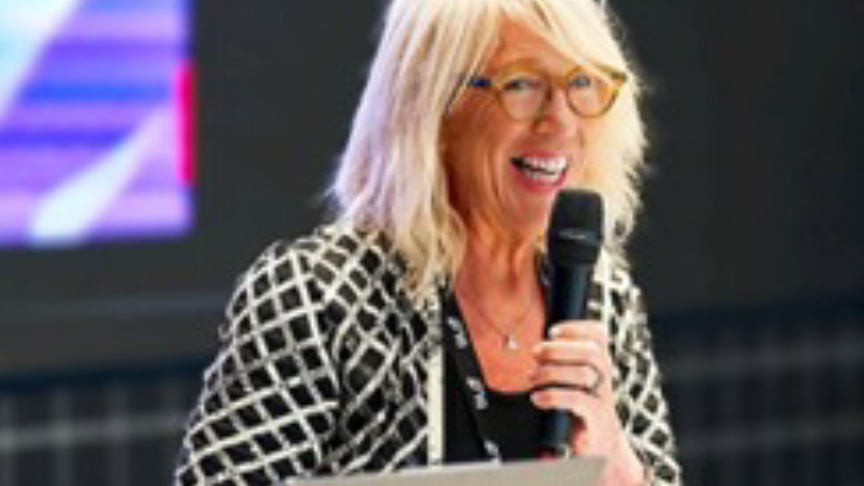Dr Mary Lou Jepsen is a genuine Silicon Valley heavyweight with a pedigree of innovation and success that goes back many years. Named one of the hundred most influential people in the world by Time magazine, Jepsen has held senior executive positions at Facebook, Oculus, Google and Intel. She has been involved with the founding of no fewer than four hardware companies, including as CTO of the One Laptop per Child (OLPC) initiative. Her companies have shipped billions of dollars’ worth of products. She has been a professor at MIT and is the creative force behind around 250 patents.
Her latest venture is perhaps her most intriguing and ambitious. As co-founder of Openwater, she has set herself the task of revolutionizing neural imaging and creating a whole new direction for healthcare technology. Based on the belief that all patients have a right to receive critical care in a timely manner, Openwater is developing imaging solutions that aim to change, for example, the grim statistics around stroke outcomes.
A ‘fireside chat’ at the recent NetEvents Global Media Summit in San Jose gave Jepsen the chance to talk about some of the bigger issues of life along with her thoughts on how to address them.
She started with the sobering reflection that around half of the people in the audience can expect to be taken out by cancer, cardiovascular disease, heart attack or stroke. The next quarter will succumb to diabetes, kidney disease or infections like COVID. Those lucky enough to get to 80 or 90 will be laid low by one or other neurodegenerative disease.
“Yet all of us still think we’re immortal,” she reflected. It was while working on advanced virtual reality and augmented reality solutions at Facebook seven years ago that it first occurred to Jepsen that there might be better ways to manage end of life issues: “I reflected that pixel sizes on camera chips are set to get smaller than a wavelength of light, enabling a different type of physics,” she said.
“That could let us see inside our bodies in higher resolution – higher and also cheaper – than we can do today with MRI or CT technology. These multimillion dollar scanners have saved many lives, but with new approaches to imaging we can address not just cancers but mental diseases and neurodegenerative problems.”
Seven years into a self-funded attempt to get answers to these issues, and Openwater is making huge progress: “We’re building a single piece of hardware that can address cancer, and mental conditions like depression, OCD, addiction and stroke,” she explained.
“The hardware works at very low frequencies and intensities, helping to tackle, for example, human glioblastoma, a fatal form of brain cancer. It is based on the discovery of a mechanical property in all aggressive cancers that no existing therapies exploit. Current therapies are based on radiation and chemotherapy that harm both the cancer and your healthy cells, although they harm the cancer more. We grew human brain organoids at UCLA with glioblastoma on them and found we could kill most of those cells five times more effectively than the best chemotherapy. We hope to be ready for compassionate use on humans at the end of this year.”
So what are the main unsolved challenges lying ahead for Openwater?
“A lot of these are regulatory,” explained Jepsen. “We have developed a stroke detector. Stroke is the number two killer in the world and the vast majority of victims die of something called large vessel occlusion. Most people that get this will die or at least won’t walk or talk again. But we know how to solve clots, so why do so many people die of this? It’s about time to diagnosis. When a patient needs a thrombectomy, they need to get to the right department quickly. But by law in many US states they sit behind gunshot and stabbing victims and heart attacks, because in those cases it’s more apparent what they have. Only once you’re through that stage do you maybe get a scan so they can see there’s been a stroke. It could be another two hours before you get the thrombectomy. What we’re doing is using a camera chip that let’s doctors see quickly what is needed to speed up the process. We’ve been amassing the data to prove this to the FDA and we expect approval next year.”
So how much of a typical enterprise CIO’s unglamorous but essential concerns around infrastructure and security are relevant when considering work such as that being done by Openwater?
“All of that is important,” answered Jepsen. “When you’re dealing with hospitals and ambulances, that all matters. When I worked at Google and Facebook, we took good infrastructure for granted. You go to a hospital and you can’t get Internet where you want. It’s highly regulated. It’s no good having to click 10 times to get what you want when every minute counts. It’s frustrating when a hospital’s perception of a patient’s anonymity seems more important than their care. In a stroke situation, you’re losing two million neurons a minute, so isn’t there a there a way to speed things up, perhaps with 5G? We’re working on this.”
Next step for Openwater is to get its device into as many hands as possible by constructing it out of simple off-the-shelf parts, such as the light sensors used in smartphones and cameras. Then Openwater plans to provide imaging support not just to doctors in developed economies but also to countries where the essential medical infrastructure is scarce. By taking new and innovative approaches to issues like medical imaging, Jepsen is helping to write a whole new chapter in global healthcare. Just imagine if her philosophy could be applied to some of today’s more intractable business challenges.










































































































